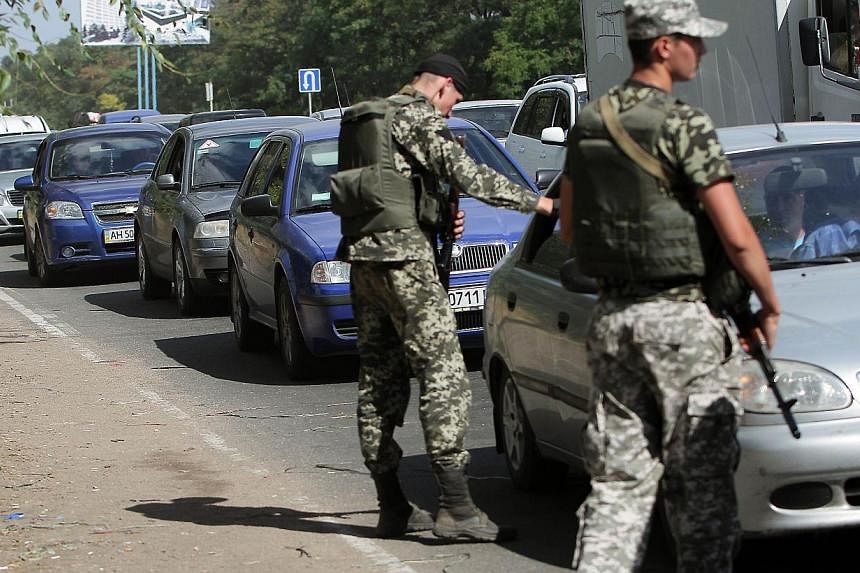September is viewed by some traders as the worst month on the calendar for the stock market.
This is in view of some of the worst market calamities that occurred during this period in recent years.
They include the terrorist attacks on New York's World Trade Centre in 2001 and the collapse of US investment bank Lehman Brothers seven years later in 2008.
So, as trading for September kicks off today, there are likely to be traders who will pare down their stock exposure or postpone investing the cash they have.
But so far, the latest fund flow report produced by Citi Investment Research shows that foreign investors are positive on both equities and bonds.
Last week, they poured US$5.3 billion (S$6.6 billion) into bond funds and US$5 billion into equity funds.
In particular, they were bullish on Asia, as they put about US$1.8 billion into funds which invest in markets such as Taiwan, India and South Korea.
On the flipside, there are the doomsayers who are worried that a big correction may be just around the corner, as it has been three years since the US market experienced a 10 per cent correction.
And given the influence that Wall Street has on the rest of the world's stock markets, they are concerned that if the US bull run suddenly screeches to a halt, it may have a huge negative impact on the local stock market.
For them, the sight of Wall Street's S&P 500 Index closing last Friday above the 2,000 level at 2,003.37, as it marked its 32nd record close for this year, was a tell-tale sign that the US rally may be on its last legs.
Thus, it is worthwhile examining some of the "known unknowns" confronting the market - to borrow a phrase made famous former US defence secretary Donald Rumsfeld.
Most of the risks are geopolitical in nature.
One of the biggest known unknowns is the conflict in Ukraine as Nato confirmed Ukrainian claims that troops from next-door Russia were involved in direct fighting against Ukrainian forces.
This has sparked concerns that the West may be drawn deeper into the war, besides merely imposing economic penalties on Russia, as the Ukrainian crisis escalates.
Then, in a move which recalled the precautionary measures taken after the Sept 11, 2001 attack on the United States, Britain warned of a possible terror attack because of the growing activities of Islamist groups in Syria and Iraq.
US President Barack Obama's dithering over the sort of military actions he should take in Syria against Islamist radicals only serves to add a further element of uncertainty to September.
On the financial front, there is the usual question as to how emerging markets such as Indonesia and Brazil would cope with a possible slowdown in China's investment spending and an eventual rise in US interest rates as the US central bank winds up its massive bond-buying programme.
This was in view of the mayhem that hit emerging stock markets last year when then-US central bank chief Ben Bernanke flagged a scaling down of the bond-buying.
On the local front, the recent corporate reporting season saw many companies missing estimated earnings forecasts by analysts.
Citi said in a recent note that notable misses included plantation counters such as Wilmar International and Golden Agri-Resources, as well as transportation counters like Singapore Airlines and Neptune Orient Lines.
Perhaps, that explains why daily stock market turnover could scarcely vault past the $1 billion hurdle - traders would rather sit along the sidelines and not load up on more stocks.

